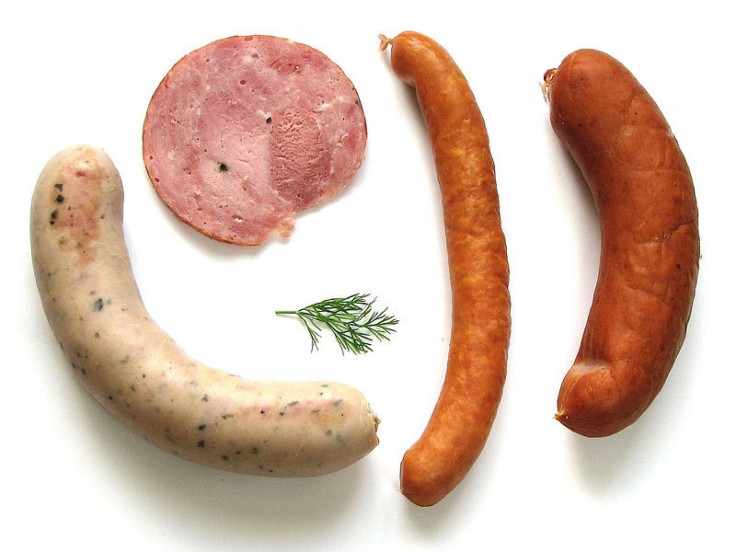Sausage and Cancer: Processed Meat Shown to Increase Risk of Pancreatic Cancer

Consuming a single serving of processed meat, such as sausage, each day could increase your risk of pancreatic cancer, suggests results from a recent study. Though the cancer risk is small, reducing your intake of processed meats is a healthfully beneficial move.
Swedish researchers analyzed seven previously published studies and found that the risk of pancreatic cancer was 19 percent higher among males and females who ate approximately 4-ounces of processed meat each day, according to a report by ABC News. That amount equates to about one link of sausage or four pieces of bacon. For people eating double this amount, the increased risk jumps to 38 percent, according to The Telegraph.
Right now, your lifetime risk of getting pancreatic cancer is 1.4 percent, said ABC News senior health and medical editor Dr. Richard Besser. If you have a serving of processed meat per day, your risk would go up to 1.7 percent; still very small.
According to the National Cancer Institute, pancreatic cancer occurs at a rate of one in every 65 men and women. Dubbed the silent killer, the five-year survival rate is just 5.5. percent since it if oftentimes greatly developed once it is found. About 80 percent of those diagnosed die within a year.
We've always said don't eat a lot of processed meats, Besser said, referring to the sausage and cancer link. Processed meats have been linked to other cancers such as colon and bladder cancer. Because they are high in salt and fat, they can aggravate other health problems as well.
This particular study suggests that the cancer link stems from nitrites, chemical preservatives found in sausage and other processed meats broken down in the stomach and carried to the pancreas through the bloodstream. If you want to cut down on that, Besser said, you can look for products that don't have nitrites.
The study concludes: ''Findings from this meta-analysis indicate that processed meat consumption is positively associated with pancreatic cancer risk. Red meat consumption was associated with an increased risk of pancreatic cancer in men. Further prospective studies are needed to confirm these findings.''
Besser added that the study, published in the British Journal of Cancer, does not touch upon confounding variables such as diabetes, obesity and smoking that may contribute to the cancer as well. When you're combining a lot of different studies, it's sometimes hard to take all of that into account, he said.
The American Meat Institute Foundation, however, defends that red and processed meat is a healthy part of a balanced diet. It states that nutrition decisions must be made on a complete body of evidence, not one single study.
Too often, epidemiological findings are reported as 'cased closed' findings, as if a researcher has discovered the definitive cause of a disease or illness, AMIF president James Hodges said in a statement. All of these studies struggle to disentangle other lifestyle and dietary habits from meat and processed meat and admit that they can't do it well enough to use their conclusions to accurately recommend people change their dietary habits. What the total evidence has shown, and what common sense suggests, is that a balanced diet and a healthy body weight are the keys to good health.
Sara Hiom, Director of Information at Cancer Research UK, said: ''The jury is still out as to whether meat is a definite risk factor for pancreatic cancer and more large studies are needed to confirm this. But this new analysis suggests processed meat may be playing a role.
We do know that, among lifestyle factors, smoking significantly ramps up the risk of pancreatic cancer. Stopping smoking is the best way to reduce your chances of developing many types of cancer and other diseases as well.''
© Copyright IBTimes 2025. All rights reserved.





















